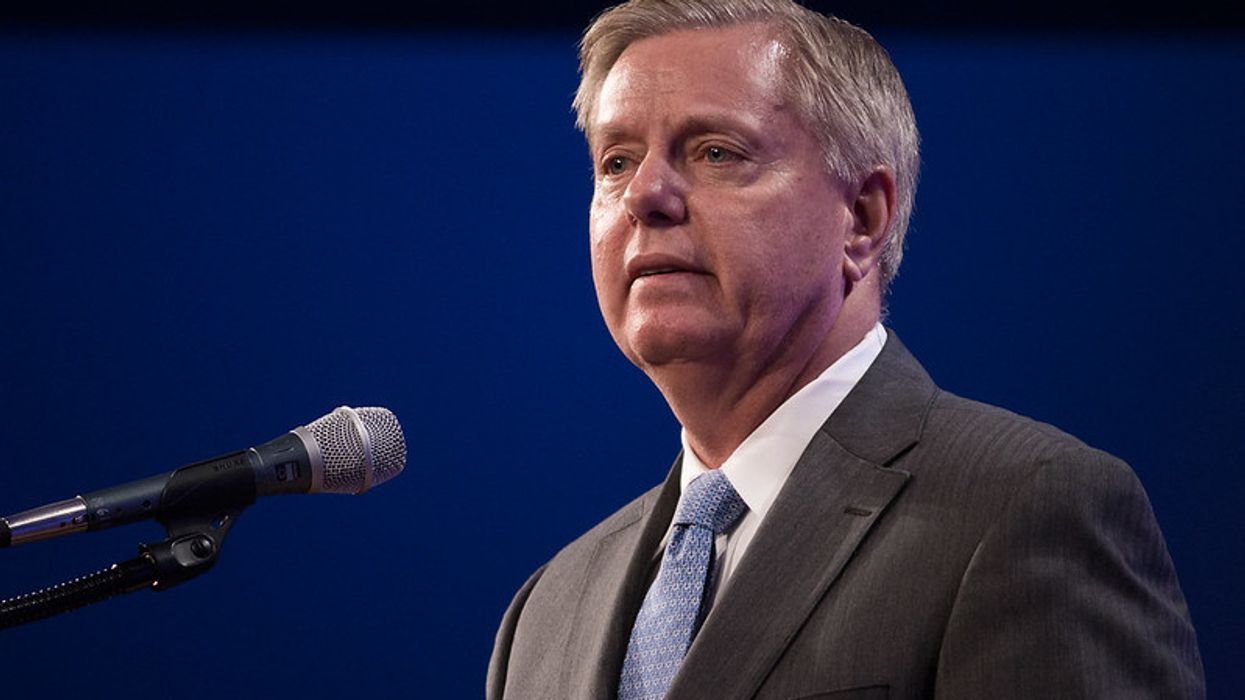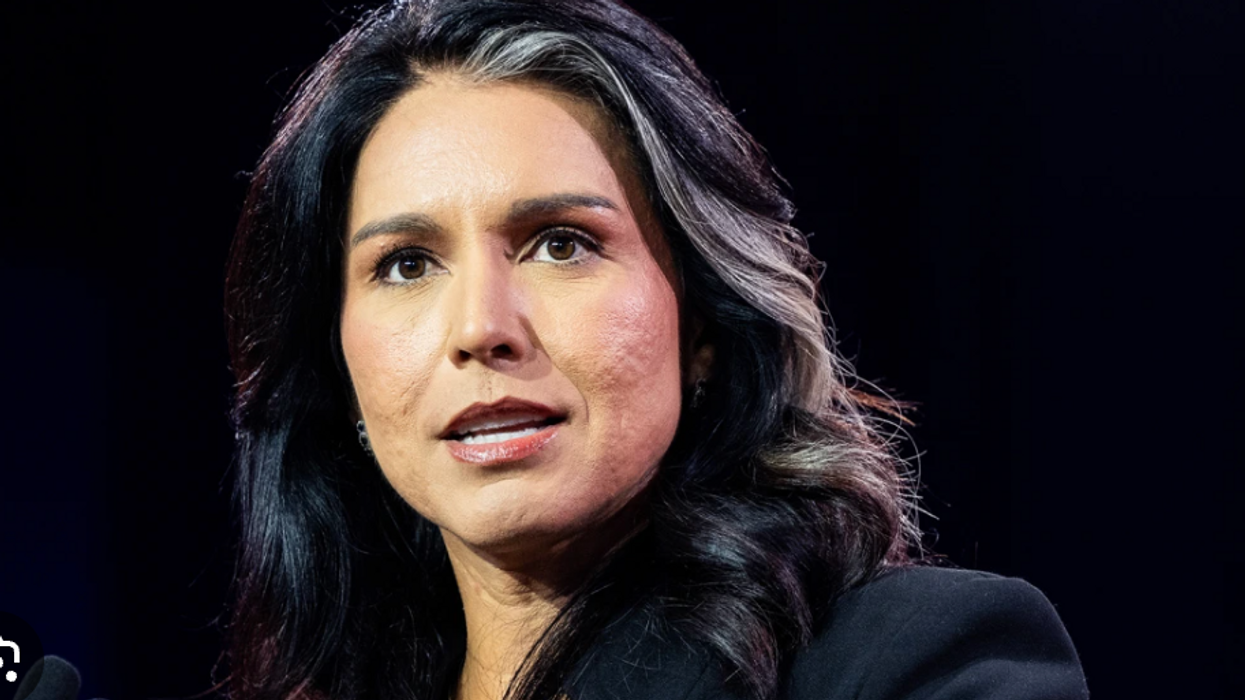Joni Ernst’s Unethical Romances With Military Lobbyists Provoke Concern
ProPublica is a nonprofit newsroom that investigates abuses of power. Sign up to receive our biggest stories as soon as they’re published.
Earlier this year, the Air Force revealed that the general who oversaw its lobbying before Congress had inappropriate romantic relationships with five women, including three who worked on Capitol Hill.
Maj. Gen. Christopher Finerty’s colleagues told investigators the relationships were “highly inappropriate” as they could give the Air Force undue influence in Congress. “I honestly felt sick to my stomach,” one said, according to a report about the investigation, “because it just felt so sleazy.”
The Air Force inspector general’s report redacted the names of the women who worked on the Hill.
But one of the women whose relationship with Finerty was scrutinized by the inspector general was Sen. Joni Ernst, according to two sources with knowledge of the investigation. The Iowa Republican and combat veteran is one of the most influential voices on the Hill about the military, and she sits on the Senate’s Armed Services Committee, which oversees the Pentagon and plays a crucial role in setting its annual budget.
Three other sources told ProPublica that around 2019 Ernst had a previous romantic relationship with a legislative affairs official for a different branch of the military, the Navy.
Ernst and the officials were not married at the time and Senate rules do not bar lawmakers from entering into romantic relationships with lobbyists or other legislative advocates. But ethics experts say such relationships can create a conflict of interest, and other lawmakers have been criticized for such behavior in the past.
A former legislative affairs official for the military told ProPublica that people in that role aren’t officially “lobbyists but for all intent and purposes that’s their job. ... From an ethics standpoint, it’s severely problematic.” A former Air Force officer who worked for Finerty said the perception in the office was that his relationship with Ernst “absolutely gave the Air Force undue influence.
”Six sources who worked for the Air Force or in Congress told ProPublica that they had heard about a relationship between Ernst and Finerty and there had been concerns about it for years. The sources spoke on condition of anonymity because they did not have permission to speak publicly or feared for their jobs. One source said that they were told about the relationship by one of the two participants. Two sources said they heard from witnesses interviewed by the inspector general that Ernst was a focus of the investigation.
A spokesperson for Ernst would not address whether the senator had any relationships with military legislative liaisons but said the lawmaker maintained her independence: “The fake news media is clearly too busy gossiping to report the real news that Senator Ernst is focused on cutting waste at the Pentagon. Her votes and work in the Senate are guided by the voices of Iowans who elected her and her constitutional duty alone. Any insinuation otherwise by tabloid ‘journalism’ is a slanderous lie — full stop.”
Finerty’s lawyer also declined to say whether the general had a romantic relationship with Ernst while he was advocating for the Air Force in Congress. “The IG report found no evidence suggesting anything remotely approaching either conflict of interest or undue influence involving General Finerty and anyone on Capitol Hill. Further, the IG report found no law, rule, policy or guidance prohibited any of General Finerty’s relationships. Any suggestion to the contrary would be defamatory.” (The inspector general report said Finerty “wrongfully engaged in inappropriate relationships with multiple individuals” in violation of the code of military justice.) In his interview with the inspector general, according to the report, Finerty defended relationships between people in his office and “members on the Hill” — a term used to describe members of Congress.
The 41-page report documenting the inspector general’s investigation of Finerty was completed in September 2023 but was shared with Congress, and then the public, earlier this year in response to records requests. (The investigation summary, posted on the Air Force’s website, was reported first by Politico, without any mention of Ernst’s involvement.)
At the time of the report’s release to Congress in early January, Ernst’s influence over the Pentagon was on full display, as she sat at the center of one of the Trump administration’s most contentious confirmation battles. Ernst had made statements suggesting she had reservations about President Donald Trump’s nominee for defense secretary, Pete Hegseth, and though she had later made encouraging statements, she had refused to formally back him.
At the time of the report’s release to Congress in early January, Ernst’s influence over the Pentagon was on full display, as she sat at the center of one of the Trump administration’s most contentious confirmation battles. Ernst had made statements suggesting she had reservations about President Donald Trump’s nominee for defense secretary, Pete Hegseth, and though she had later made encouraging statements, she had refused to formally back him.
Serving in the Iowa Army National Guard during the Iraq War, Ernst is the Senate’s first female combat veteran and has pushed to reform the military’s handling of sexual assault cases. Hegseth faced scrutiny over past allegations of excessive drinking and sexual assault, which he denied, as well as criticism for comments he made against allowing women in combat. Then in mid-January, Ernst reversed course under pressure from Trump allies and formally endorsed Hegseth. Her backing was considered pivotal in reviving what had appeared to be a flailing nomination.
The report about Finerty is heavily redacted but provided the following details about the inspector general’s findings. Two of the five women worked for the Pentagon. They include a civilian employee who was married to another officer and an Air Force enlisted member significantly lower down the chain of command than Finerty. Finerty interacted with the three other women on Capitol Hill as part of his legislative affairs work, “mixing his professional and personal roles, thus creating the perception of a conflict of interest.” Finerty sexted two of those women in 2021. He sexted and had an “intimate relationship” with the third, though the report does not say exactly when.
The nature of his relationship with the women varied, from suggestive messages to graphic sexting and photos to physical sex, according to the report. Sources told ProPublica that the inspector general asked witnesses about Ernst, but because of the redactions in the report, it’s unclear which sections, if any, refer to the senator.
The report includes a stark example of Finerty’s legislative advocacy overlapping with his romantic relationship with one of the women on Capitol Hill.
In June 2021, Finerty texted the woman “I was distracted by you being distracted.” Then he sent her a list of “top 5 things to protect if possible,” including a particular fighter jet, radar technology and a system to improve interoperability across the military’s branches.
“What distraction?” the woman texted back. “If I was [redacted] would it be distracting?” She followed up with a series of what the inspector general report described as pornographic pictures.
Finerty told investigators that his romantic relationships with the women on Capitol Hill were proper because all participants were unmarried.
“Those weren’t Chris Finerty’s personal interest items. Those were the five things that were in the President’s Budget that we’re charged to go up there and ensure that we get across the finish line,” he said, according to the report. “I wasn’t saying hey, do me a personal favor and protect these five things. It was, these are the five things that the Air Force has in the President’s Budget that we’re trying to do that we need your help with.”
Many of Finerty’s colleagues who were also working in military legislative affairs took a more negative view. In interviews with investigators, they expressed concerns about the relationships leading to undue influence, other military branches perceiving the Air Force as getting preferential treatment, and other congressional offices worrying they were less likely to receive sensitive information.
The inspector general’s investigation found “several exchanges between Maj Gen Finerty and the women regarding legislative matters” but “no evidence of favors or exchanging of sensitive information by either party.”
Regarding one of the Hill relationships, a colleague of Finerty’s told investigators, “Was there a perception in my office that it was unethical? Yes.” The colleague reported it affected morale and people were “talking about it all the time.”
Justin Elliott and Andy Kroll contributed reporting. Alex Mierjeski contributed research.
Reprinted with permission from Pro Publica












